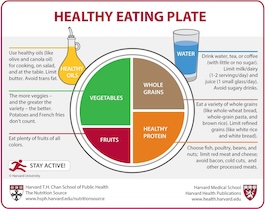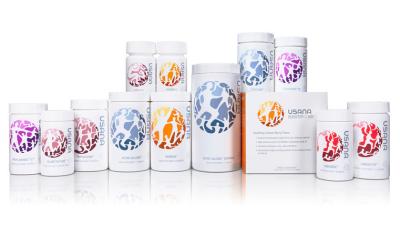Omega-3 fatty acids are among the most studied nutrients in modern health science—and for good reason. From supporting mental clarity to fostering a healthy heart and nurturing the gut, the case for including Omega-3s in your daily routine is stronger than ever.
1. What Are Omega-3s?
Omega-3s are polyunsaturated essential fatty acids—meaning our bodies cannot make them, so we must source them through diet or supplements. The primary types are EPA, DHA, and ALA:
-
EPA & DHA: Primarily found in marine sources like fatty fish and algae, critical for brain, heart, and eye health.
-
ALA: Plant-based form found in flaxseed, chia, hemp seeds, walnuts; the body converts a small portion into EPA and DHA. NCCIHWikipedia
2. A Boost for Brain and Mental Health
Omega-3s—especially EPA and DHA—play deep roles in brain structure and function. DHA is integral to cell membranes in the brain and retina. Wikipedia Research links these fatty acids to improved memory, cognitive resilience, and potentially slowing age-related decline. EatingWell
EPA, in particular, has been shown to help reduce symptoms of depression and anxiety, likely by modulating inflammation and neurotransmitter signaling. HealthlineWikipedia For those supporting mental wellness naturally, Omega-3s can be a valuable complement to other lifestyle efforts.
3. Heart Health Hero
For decades, Omega-3s have had the endorsement of the American Heart Association for reducing cardiovascular risks—including heart attack and stroke—in people with existing heart disease. Harvard Health They lower triglycerides, support healthy HDL (“good”) cholesterol, and reduce clotting.
Dietitians recommend fatty fish like salmon, mackerel, and sardines at least 1–2 times per week to help elevate HDL levels and offer broader cardiovascular benefits. EatingWell
4. Gut Microbiome & Immune Support
Omega-3s also influence gut health. They help shift gut microbiota toward beneficial species that produce anti-inflammatory short-chain fatty acids, such as butyrate—crucial for guarding the intestinal lining and reducing systemic inflammation. PMCSpringerLink
Additionally, they help regulate gut immunity, fostering balanced immune response and a healthier gut-brain connection. Floré by Sun GenomicsJanuary AI
5. More Potential Health Benefits
-
Bone & Joint Health: May support bone mineral density and relieve arthritis symptoms. HealthlineWHFoods
-
Pain Relief: Some studies suggest reduced menstrual pain with Omega-3 supplementation—potentially more effective than ibuprofen. Healthline
-
Cancer Risk Reduction: Mixed studies suggest Omega-3s, in balance with Omega-6, may lower risk for certain cancers like bowel and lung, though more research is needed. The Scottish Sun
6. Dietary vs. Supplement Sources
A diet-first approach remains ideal. Rich sources include:
-
Fatty fish: Salmon, mackerel, sardines, anchovies WikipediaEatingWell
-
Plant foods: Flaxseed (especially ground), chia, hemp seeds, walnuts, perilla Real SimpleWikipedia
Supplements help bridge gaps, especially for vegetarians, pregnant women, or those not eating seafood. Algal oil provides a vegan EPA/DHA source. Regularity and dosage often matter more than the time of day you take them. The Times of India
7. Safe Dosing and Practical Tips
-
General guideline: Aim for 250–500 mg combined EPA and DHA daily; those with heart risk may benefit from higher doses (1 g+). EatingWellVerywell Health
-
Pregnancy: Recommended DHA intake is 300 mg/day—but average consumption is often much lower. Wikipedia
-
Safety: Generally well-tolerated in food form. High-dose supplements should be discussed with a healthcare provider, especially if on anticoagulants.
8. Integrating Omega-3 into Your Daily Pantry
Try adding these foods regularly:
-
Fatty fish (2–3 times weekly) like salmon or mackerel
-
Smoothies with flax or chia seeds
-
Salads topped with hemp hearts or walnuts
-
Plant-based Omega-3 supplements (algal oil for vegetarians)
Use Omega-3 supplements from trusted sources like USANA BiOmega™ for purity and potency.
9. Summary Table: Why Omega-3s Matter
| Health Area | Benefit of Omega-3 |
|---|---|
| Brain & Mood | Supports memory, reduces anxiety/depression |
| Cardiovascular | Lowers triglycerides, boosts HDL, clot protection |
| Gut & Immunity | Enhances microbiome, reduces inflammation |
| Eyes & Bones | Supports visual structure and joint comfort |
| Pregnancy & Aging | Supports fetal development and cognitive health |
Omega-3 fatty acids are foundational to a vibrant, well-functioning body—and not just for one aspect of health. From mental clarity to heart resilience to digestive harmony, they work at the cellular level across systems. If your diet isn’t consistently delivering, a high-quality supplement can help fill that gap effectively.

 Español
Español









